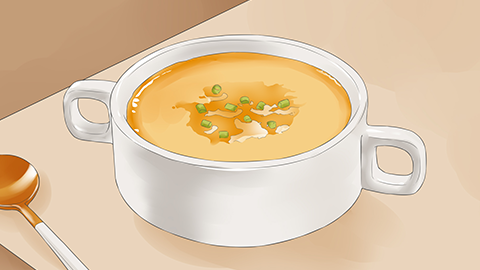How to eat after gastrointestinal stromal tumor surgery
After surgery for gastrointestinal stromal tumor (GIST), diet should follow principles such as gradual progression, adequate intake of high-quality protein, low-fat and bland foods, frequent small meals, and avoidance of irritating foods. If persistent bloating, vomiting, or blood in stool occurs after surgery, prompt medical attention is recommended.
1. Gradual transition: Start with liquid foods such as rice soup and lotus root powder immediately after surgery. Once tolerated, progress to semi-liquid foods like millet porridge and steamed egg custard. After 2–3 weeks, soft foods can be introduced gradually, allowing the gastrointestinal tract to adapt to its digestive capacity. Avoid solid or hard-to-digest foods initially.

2. High-quality protein supplementation: Choose high-quality protein sources such as fish, chicken, eggs, and tofu. Prepare them in soft forms (e.g., minced fish or ground meat) and consume in moderate amounts daily. These provide essential building blocks for gastrointestinal tissue repair, enhance immune resistance, and promote recovery.
3. Low-fat and bland diet: Strictly limit fat intake; avoid fried foods, fatty meats, and animal organs. Use cooking methods such as steaming, boiling, and stewing. Minimize spicy and greasy seasonings to reduce gastrointestinal irritation and prevent indigestion or diarrhea.
4. Frequent small meals: Divide daily food intake into 5–6 meals, controlling portion sizes to avoid overloading the digestive system at once. This reduces the digestive burden on the gastrointestinal tract while maintaining steady energy supply and preventing discomfort caused by hunger.
5. Avoid irritating foods: During postoperative recovery, avoid spicy foods, raw or cold foods, strong tea, and coffee. These can irritate the gastrointestinal mucosa, potentially causing abdominal pain, bloating, or worsening gastrointestinal injury, thereby delaying healing.
A scientifically balanced diet helps reduce gastrointestinal strain, supports functional recovery, and lowers the risk of postoperative complications. Maintain fresh and hygienic food choices, chew slowly and thoroughly to aid digestion, and take a gentle walk after meals to stimulate gastrointestinal motility. Adjust the diet flexibly according to individual tolerance to support both gastrointestinal function and overall recovery.








